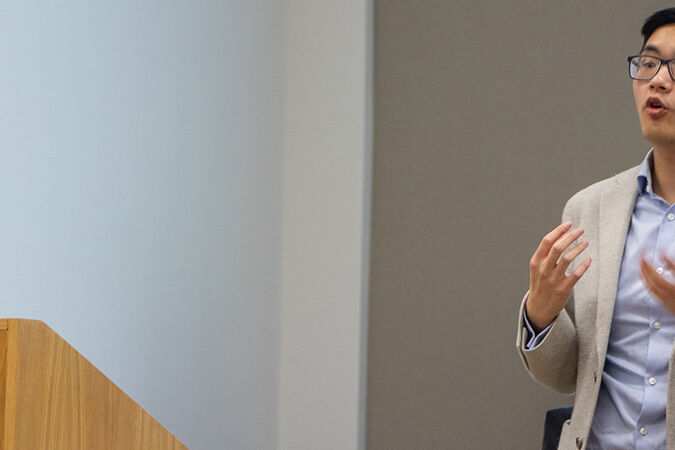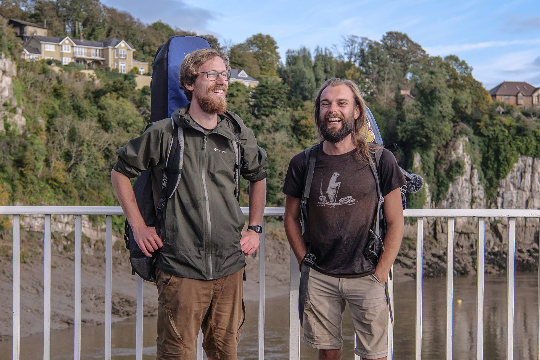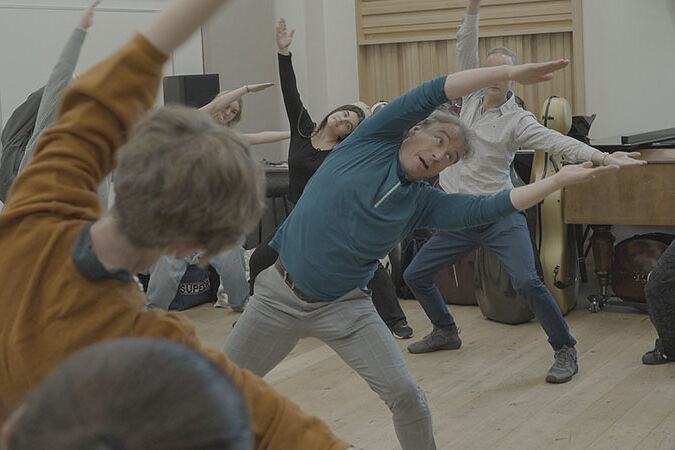
Blog

Emaleigh Conn is a final year student of the Royal Birmingham Conservatoire studying on the BA (Hons) Applied Theatre course. She describes how her course has shaped her professionally, and how her heritage has influenced her professional career so far. Emaleigh is also a founding member of Equity's GRT Network (Gypsy, Roma and Traveller) and explains to us not only the external work she has been doing to address the lack of representation of GRT people in the entertainment industry, but also the inclusive theatre performances she has produced with local communities.
In what ways do you think your course has shaped you professionally?
I really believe that BA (Hons) Applied Theatre has given me the space I needed to challenge myself in so many ways, both creatively and personally. It has also given me the chance to develop my craft as a facilitator, practitioner, director, writer and actress. It is such a well-rounded course in terms of expanding my skill set; gaining experience and opportunities, that I feel I wouldn't have got on another degree.
One of the most important things I have been able to take away is the ability to reflect on myself and my work whilst allowing myself to be proud of what I have achieved and not being too critical (which I think we can all be guilty of sometimes). Not only that, but as the course prides itself on community engagement, I have been fortunate to meet a wide variety of people who have opened my eyes and welcomed me into their lives by sharing their experiences. Of course this is great when being used as a basis to create theatre, but it also shapes you as a person when you are given the space to be vulnerable and have your experiences validated. This is really important to me as a professional, because I truly believe that drama and theatre should be made accessible for anyone and everyone, and also it doesn't have to only be performed in a theatre, which is something I stand by and will take with me into my future roles.
How has your heritage influenced your career?
I grew up in a working class family on a council estate in the West Midlands, and was always made aware of the prejudice and discrimination. I was able to see from a young age how marginalised people are almost always left behind. Of course, I was also experiencing this first hand, especially when it came to my Romani Heritage and Culture.
Ever since I was in primary school I, along my family, would always help those who needed support the most - I worked with community centres, youth groups and care homes. It wasn't until I was around eighteen that I was able to look at my own ethnic group and see how they needed to have their voices amplified too. Raising GRT voices always comes with a risk of backlash, but it is something I am prepared to tackle.
I remember seeing racist signs akin to those from over 50 years ago ("No Black, No Irish, No Dogs"), but these said "NO GYPSIES" on the side of pubs, theatres, and even a local Sainsburys, in 2020. I was heartbroken. However, that developed my drive and fight from within. I realised I needed to use what I knew best - theatre - to help raise the profile of GRT stories - and that is what I set out to do.
I have worked in the world of theatre since age sixteen and I studied acting at a performing arts sixth form college in Birmingham. In hindsight, it feels like I was brainwashed by the industry to keep my ethnicity a secret and hide behind my whiteness to succeed in the arts. At the time I didn't argue back because I was passionate about performing, so by the time I left I was terrified to tell anyone about my heritage, for fear of either being a target of hate crime or blacklisted, and I couldn't tell which was worse. It wasn't until I was halfway into my first year at RBC's Acting school that I felt like I could be open and true to myself. Applied Theatre gave me the space to be vulnerable and share my experiences, but it also gave me the tools I needed to start to make a change.
I wanted to take mine, my family's, and hundreds of other GRT people's experiences and turn them into art. I also wanted to create safe spaces for GRT people to explore their creativity, and not only be given the chance to use their voice, but be heard and amplified.
Gypsy, Roma and Traveller people are known for their history of storytelling, so let us be the ones to tell our stories.
What changes do you feel are necessary to prevent GRT stereotypes on screen?
Something I have been trying to express over the past few years is that, if you cannot find anyone who is GRT to act in those roles, then you need to have GRT creatives around the table; helping with the research, the writing, the creation of the character etc. Then at least the non-GRT actor can play that role to the best of their ability. But with that being said, we are out there, talk to us, hire us - you'll have a more authentic story, and therefore a better one.
Also, Gypsy, Roma and Traveller storylines can, believe it or not, consist of more than just stereotypes, like 'putting curses on people', 'boxing' or 'being accused as a thief and then it turns out it wasn't them who were stealing'. There are so many more interesting things to put on screen. GRT characters should reflect the real world too - we are sales assistants and pub owners and teachers and don't all live in Bow Top caravans and own horses.
What role do you have in the launch of Equity's GRT network?
I am a founding member of the GRT Network. Within the Network is the Gypsy Roma and Traveller Working Group (GRTWG), which we established in 2018. It was formed to address the lack of awareness and representation of GRT people in the entertainment industry in general, and theatre in particular, with a goal to help support and raise the profile of GRT creatives at all stages of their careers; from students to established artists. We are now aiming to create positive work by and for GRT communities, and those who wish to work in partnership with them.
Can you tell us about the inclusive theatre you have developed and have been a part of so far?
To name one of a few, one of the first pieces of theatre I created was in partnership with care homes in Smethwick, where I worked with Dementia and Alzheimer's patients to deliver a series of workshops to keep them physically active whilst having a bit of fun. We also talked to the residents about their lives, and by the end of the workshops we created a short piece of theatre about some of their experiences and performed it back to them (which we similarly did in the first year of the Applied Theatre course!)
Most recently, as part of a module on the course, I worked with Open Theatre - a company that uses nonverbal physical theatre to collaborate with young people with learning disabilities and gives them space and time to explore their own creativity and use theatre in a way to connect.
Have you faced any challenges whilst studying here and how did you overcome them?
Some of the hardest challenges I have faced is tackling and overcoming prejudice within my own school, amongst my peers and often friends. I have been called racial slurs, had my culture mocked and worn as a costume, been asked to palm read, tell fortunes and even asked "if the breaks were taken off my house, would it roll down a hill" (referring to GRT people who live in caravans). I understand there is often (not always) humorous intentions, but the build-up of silly comments and remarks does take its toll.
I often say there is no such thing as a stupid question, and I am always happy to educate people who are willing to learn. But it is always nicer to feel supported from the very beginning, rather than fighting for that support.
Over the past three years it has taken some time to feel supported as a GRT student by both staff and students. I do feel that coming up to my graduation however, there is slowly becoming more space made and fairer treatment of underrepresented groups within Drama Schools and Higher Education, not just for GRT students.
This isn't something I can overcome alone; it has to be a team effort.
What is your career plan after graduation?
I plan to have a well-deserved break and some time off! Then, I would like to continue my development of putting drama provisions in place for underrepresented groups, such as GRT Communities, while also working within Equity's GRT Network.
What advice would you give to GRT students who are considering to pursue higher education?
If Higher Education is something you are considering, definitely give it a go! It is a great way to get a sense of independence and also find your feet in your chosen career path.
People who want to learn about you and your culture often make good friends, and if they don't, you know who to stay clear of, and don't forget - people can change. Positivity attracts more positivity. And, something that was reassuring for me is that there are people and systems in place when you think you need help and advice or need to report something. You should never be ashamed of asking for help - that's what they're there for.
*GRT: Gypsy, Roma and Traveller
Conservatoire Courses
Find out more about our courses




